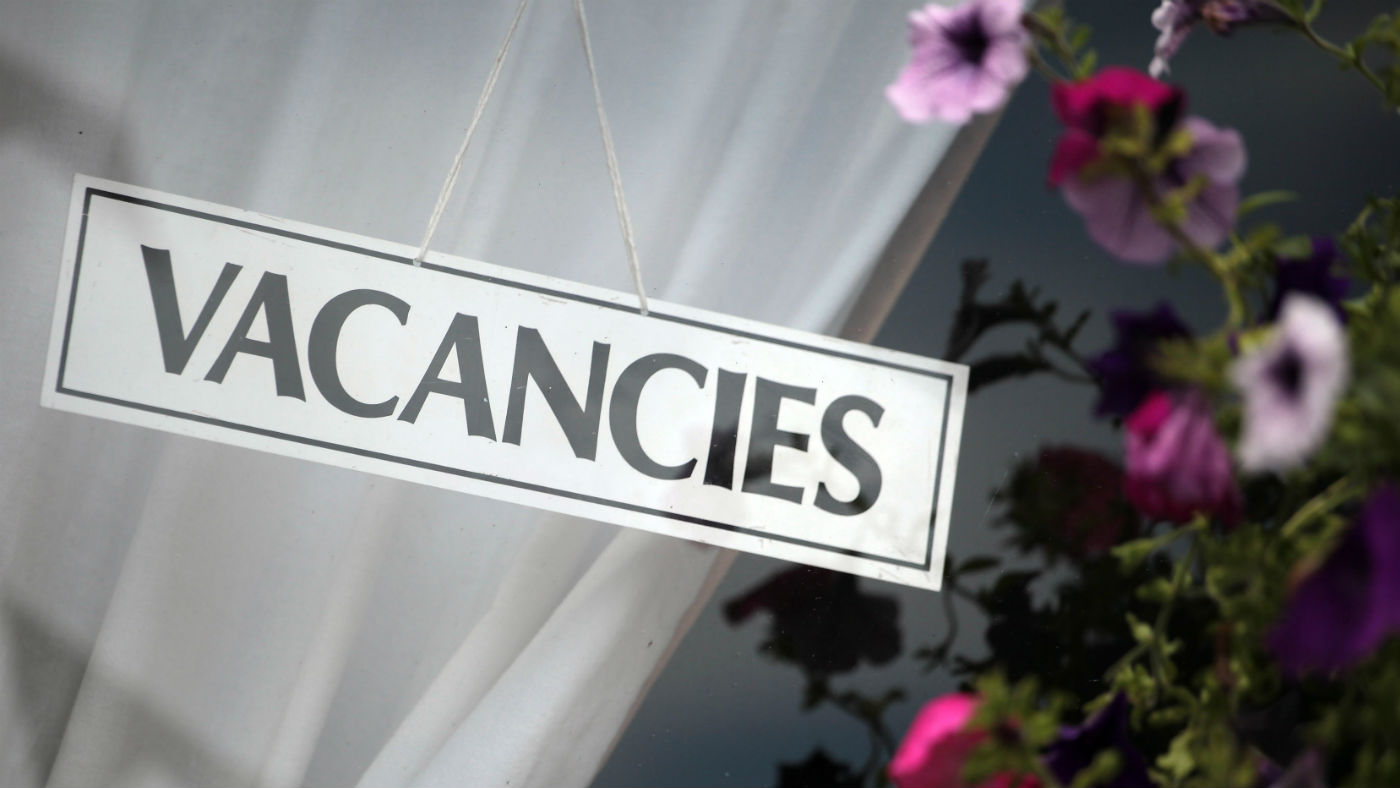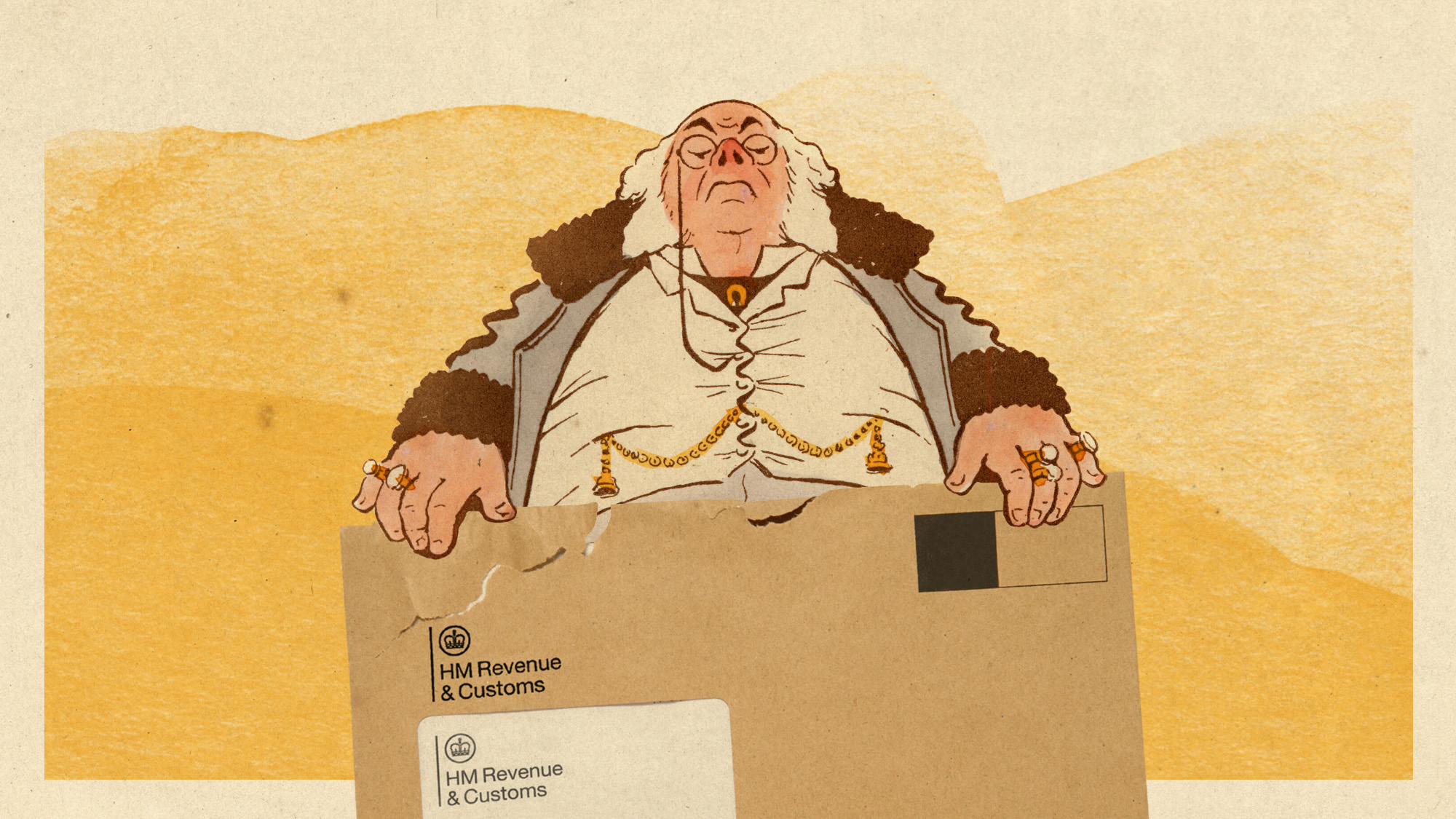B&B owners and cabbies are worst tax shirkers
Sixty percent of self-employed under-report earnings, leading to £34bn tax gap

A free daily email with the biggest news stories of the day – and the best features from TheWeek.com
You are now subscribed
Your newsletter sign-up was successful
Bed and breakfast owners and taxi drivers are among the British workers most likely to underpay their taxes when filing self-assessments, new analysis shows.
According to a study by the Institute for Fiscal Studies, more than half of taxpayers in the construction, hospitality, and transport industries, who often deal in cash, under-report their income to HM Revenue and customs.
In the last financial year, HMRC figures show £34bn of tax went unpaid and the tax gap, the difference between actual receipts and what should in theory be collected, stood at 6% of the UK’s total tax liability.
The Week
Escape your echo chamber. Get the facts behind the news, plus analysis from multiple perspectives.

Sign up for The Week's Free Newsletters
From our morning news briefing to a weekly Good News Newsletter, get the best of The Week delivered directly to your inbox.
From our morning news briefing to a weekly Good News Newsletter, get the best of The Week delivered directly to your inbox.
Analysing random government audits dating back to 1999, the IFS found more than one third of self-assessment taxpayers, and almost 60% of those who are self-employed, have under-reported their income. It also found that men are more likely to under-report than women.
In the vast majority of cases the personal tax gap is less than £1,000 - but the problem of undisclosed self-employed income is growing. The number of people in self-employment has boomed in the UK in recent years, and now stands at 4.9 million, or 15% of all people in work, representing a significant proportion of the Treasury's tax revenue.
The government has denied claims it is not doing enough to prevent tax avoidance, arguing the tax gap was the lowest on record and one of the slimmest in the world. The Guardian cited a Treasury official who said the government had introduced 75 measures over the past seven years to reduce tax avoidance, evasion and non-compliance, including steps intended to ensure multinational companies pay the right amount under UK law.
A free daily email with the biggest news stories of the day – and the best features from TheWeek.com
-
 The 8 best TV shows of the 1960s
The 8 best TV shows of the 1960sThe standout shows of this decade take viewers from outer space to the Wild West
-
 Microdramas are booming
Microdramas are boomingUnder the radar Scroll to watch a whole movie
-
 The Olympic timekeepers keeping the Games on track
The Olympic timekeepers keeping the Games on trackUnder the Radar Swiss watchmaking giant Omega has been at the finish line of every Olympic Games for nearly 100 years
-
 Autumn Budget: will Rachel Reeves raid the rich?
Autumn Budget: will Rachel Reeves raid the rich?Talking Point To fill Britain’s financial black hole, the Chancellor will have to consider everything – except an income tax rise
-
 Pros and cons of a wealth tax
Pros and cons of a wealth taxPros and Cons Raising revenue and tackling inequality vs. the risk of capital flight and reduced competitiveness
-
 Is Rachel Reeves going soft on non-doms?
Is Rachel Reeves going soft on non-doms?Today's Big Question Chancellor is reportedly considering reversing controversial 40% inheritance tax on global assets of non-doms, after allegations of 'exodus' of rich people
-
 Foreigners in Spain facing a 100% tax on homes as the country battles a housing crisis
Foreigners in Spain facing a 100% tax on homes as the country battles a housing crisisUnder the Radar The goal is to provide 'more housing, better regulation and greater aid,' said Spain's prime minister
-
 What's next for electric vehicles under Trump?
What's next for electric vehicles under Trump?Today's Big Question And what does that mean for Tesla's Elon Musk?
-
 The row over UK maternity pay
The row over UK maternity payTalking Points Tory leadership hopeful Kemi Badenoch implied that taxpayer-funded benefit was 'excessive' and called for 'greater responsibility'
-
 Will the UK economy bounce back in 2024?
Will the UK economy bounce back in 2024?Today's Big Question Fears of recession follow warning that the West is 'sleepwalking into economic catastrophe'
-
 America's most in-demand job
America's most in-demand jobFeature And more of the week's best financial insight